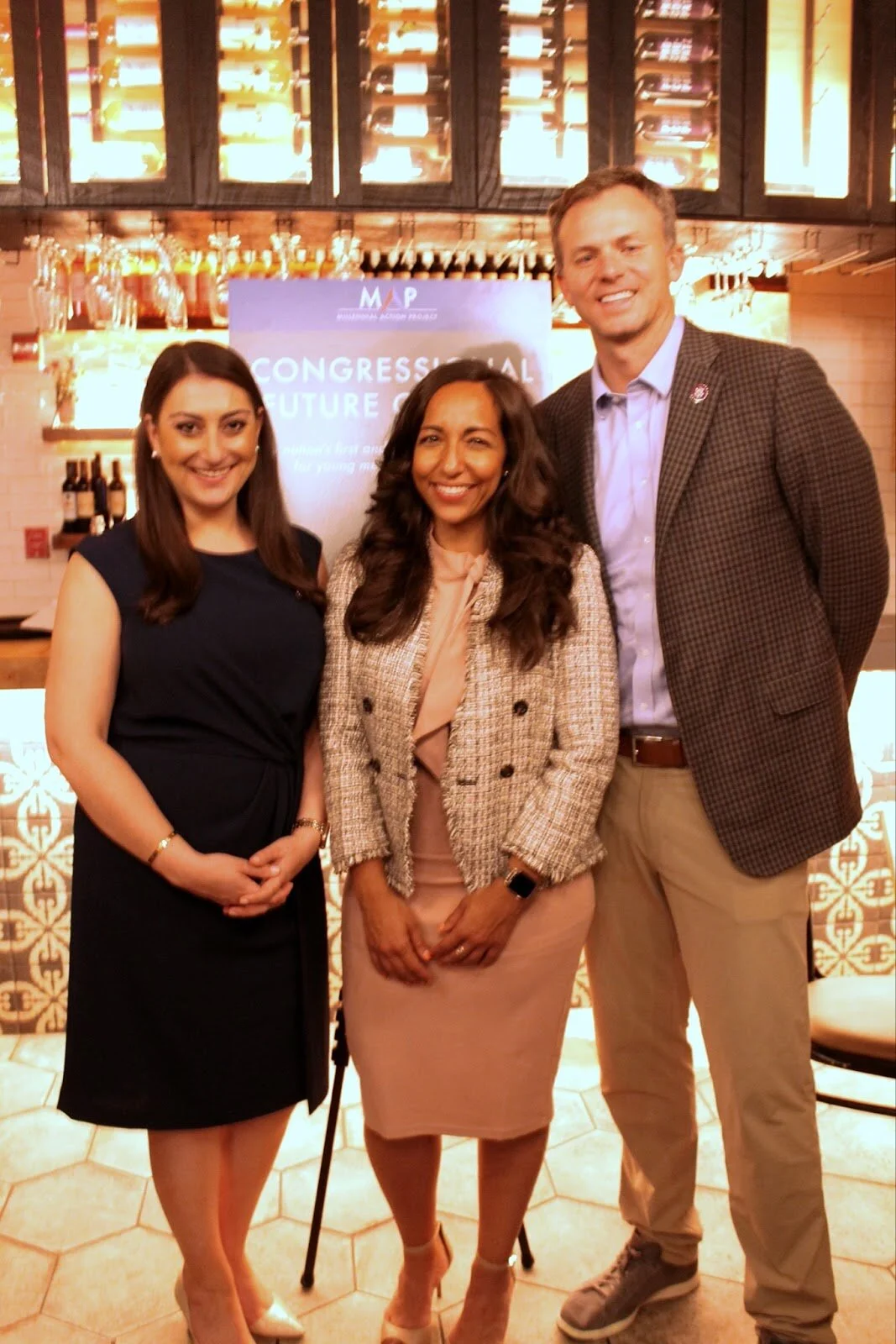On Tuesday, June 29th the Millennial Action Project convened members of the Congressional Future Caucus and thought leaders around the development and policy response to emerging technologies with a focus on defense and national security, exploring how these technologies are reshaping our country’s calculations of resilience and preparedness against crises.
This was MAP’s first opportunity to gather members of the Congressional Future Caucus in-person in over a year! Congressional Future Caucus Co-Chairs, Reps. Blake Moore (R-UT) and Sara Jacobs (D-CA), were among the members of Congress that joined the conversation on Tuesday evening. We were also honored to be joined by Congresswoman Victoria Spartz (R-IN).
Expert guests included:
Courtney Weinbaum, a senior management scientist at the RAND Corporation
Susan Schneider, Director at the Center for the Future Mind at Florida Atlantic University and former NASA Baruch Blumberg Chair at the Library of Congress
Tatyana Bolton, Policy Director for R Street’s Cybersecurity & Emerging Threats team
John Bansemer, Senior Fellow at Georgetown’s Center for Security and Emerging Technology (CSET), Director of the CyberAI Project, former Assistant Director at the Office of the Director of National Intelligence, and a retired Lieutenant General with the U.S. Airforce
Throughout the evening, experts and legislators conversed about the challenges to American national security presented by the proliferation of new technologies and threat vectors. Guests and Members of Congress alike explored the difficult nature of responding to these threats and situating both threats and responses within the appropriate rule-of-law paradigms. Recent cases, like the Colonial Pipeline hack, brought attendees to agreement on the critical need to modernize our cyber infrastructure, but also on the need to educate and communicate with the public about these threats in an appropriate manner. Overall, there was agreement that the ongoing conversation about establishing a data privacy standard in the United States is an essential step in modernizing how Americans think about cyberspace, the future of communications, and the meaning of data security.
Continuing with the theme of increasing awareness and capacity amongst Americans in these areas, guests honed in on the issue of talent development and retention by the Federal Government in certain critical sectors. In addition to concerns about foreign governments' recruitment and use of American academics and institutions to advance their own interests, dinner attendees discussed ways in which we can better develop and capitalize on existing talent in areas such as AI and cybersecurity, for example by leveraging community colleges or creating new pay scales for these workers.
Lastly, dinner attendees discussed some practical technological and logistic measures that should receive more attention from policy makers such as onshoring supply chains for critical national security technologies, and expanding funding for autonomous cyberdefense systems that can better keep pace with the drastically increased number of attacks.
Young legislators have taken up these issues during the 117th Congress and this conversation sought to advance members' understanding of over-the-horizon policy considerations spurred by technological advancements in areas such as AI and cyber. Legislators spoke about the current challenges around keeping pace with technology as a policymaker as well as the need to promote a bipartisan and universal understanding of the challenges and potential solutions. By building Caucus identity around these shared challenges, legislators in the Future Caucus are working to ensure the United States is prepared for a world shaped by the emergence of new and potentially threatening technologies, and that we will be able to respond with a unified and informed voice.



